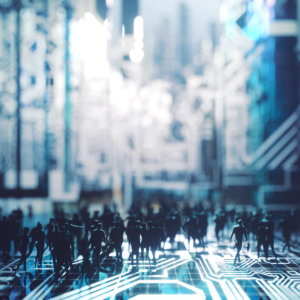Planning for the Future of Work
Rather than focus on finding jobs in the gaps left by machines, individuals and organizations would be smart to prepare themselves to adapt to a changing digital business environment.
Topics
Digital Leadership
Digital technologies are poised to disrupt how work is done. Consider the popular example of the impending arrival of autonomous vehicles. When self-driving vehicles are mainstream — within the next decade or two (or less) — the impact on work in the United States alone will be massive.
According to the United States Bureau of Labor Statistics, 1.5 million people in the U.S. are commercial truck drivers, 800,000 work as delivery drivers, and another 1 million people make a living as other types of transportation professionals — including bus drivers, taxi drivers, and Uber drivers. The secondary effects of self-driving cars and trucks are also significant; they would significantly reduce accidents, thereby also affecting auto-body shop workers, insurers, hospital emergency room workers, and a number of others.
Autonomous vehicles are only one maturing digital technology that will disrupt work. Add artificial intelligence, blockchain, additive manufacturing, and virtual and augmented reality to the disruptive mix, and the impact these technologies will have on work will be staggering. Many companies and executives are not planning for this future, and while some employees and leaders are considering how these technologies will affect their careers or their organizations, they may be doing it wrong.
The common approach, which focuses on identifying types of work that only humans can do, is an unproductive way to plan for the future of work. If one primarily fits human work into the gaps left by what computers cannot do, people will increasingly be squeezed out as technology becomes more advanced. As a general rule, computers have become capable of most things that we once thought outside the realm of computer expertise, such as facial recognition and language translation. This logically begs the question: How are people truly better than computers?
The Rise of Emotional Robots
We don’t know exactly how people will adapt or what the majority of jobs will look like in the future, but several pundits have attempted to identify the areas in which humans are superior to computers. Columnist and author


Comments (5)
d.moses
Kiran Garimella
Greg Tutunjian
ADENIYI ELEGBEDE
Luke Chilone